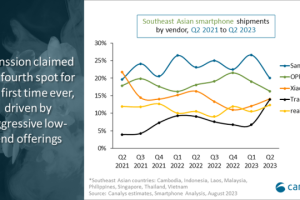Telemedicine and healthcare are both reliant on technology. While conducting a telehealth consultation, physicians rely on their hardware, technology-mediated communication, and digital retrieval and storage of data. While processing digital health data plays an increasingly important role in our healthcare industry, it is also at risk of cyber threats.
Cyber threats render technology unreliable. It is necessary that health entities spend money proactively on their cyber-security policies, focused on protecting their clients’ information along with their own image and reputation in order to prevent health entities from paying millions of dollars in recovering data or repairing damage from cyber-attacks. IT compliance mistakes can seriously damage the reputation of the healthcare provider. This may result in patients no longer feeling safe providing data to your organization after a breach.
HIPAA
The Health Insurance Portability and Accountability Act (HIPAA) was enacted to protect patients’ information. A part of upholding this aspect of the law is a good cyber-security network with strong data security. The patient may be contacting their telehealth physician from a non-secure one, such as their own mobile or connected devices, even if the healthcare institute’s network is secure. Hence, data security becomes extremely important in the telemedicine sector, as there are many different channels through which patients and doctors share data.
The challenge for telehealth organizations is to identify patients who conform to HIPAA. Seeking the assistance of cyber-security experts who make sure that shared data is encoded and anonymous both ways is the best and only method to make this possible. Data professionals should also ensure that a patient’s sensitive data is protected by keeping it anonymous, preventing hackers from targeting this information.
More and More People Are Using Telehealth
Patients have to first complete an array of paperwork before they can start receiving any type of treatment for their conditions when choosing a traditional visit. Telehealth advancement results in more time dedicated towards patient and doctor interactions, not completing paperwork. Without the requirement of additional and extensive forms, telehealth services can instantly transfer data between patients and doctors.
Healthcare practitioners now shoulder the added responsibility of securing all of their patient’s data owing to many people switching to telehealth. The variety of networks have no certainty of being secure when patients connect to you via telehealth. With the growing number of telehealth patients, it is imperative that healthcare organizations put additional measures into place that will block any threat from outside sources.
We are pleased to announce 3rd Healthcare Digital Innovation Summit 2019 on 15th Feb 2019 at Ahmedabad. The Healthcare IT Summit will be the premier conference and expo for exploring innovations in eHealth, mHealth, TeleHealth and IT implementation in Government organization and hospitals.




























